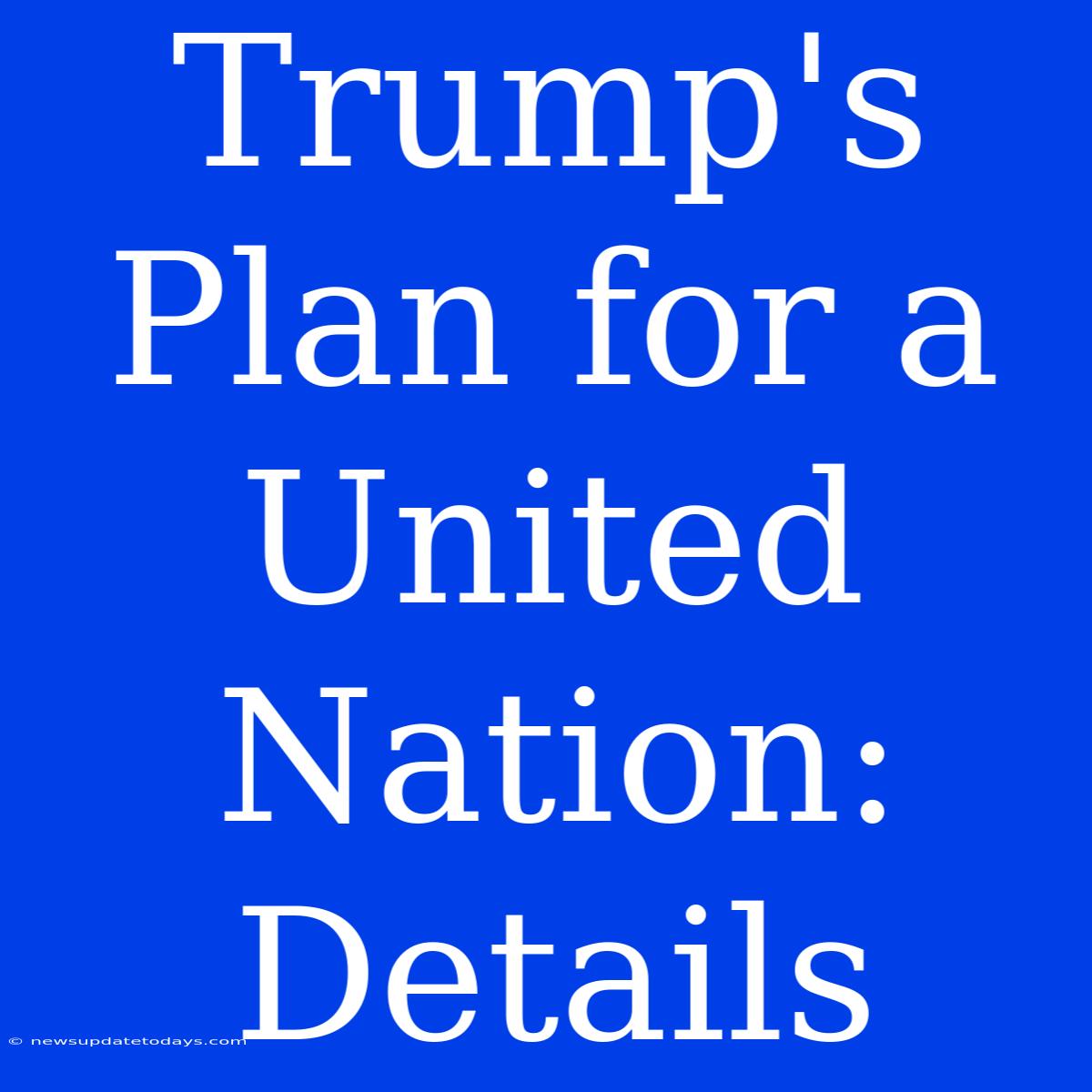Trump's Vision for a Reformed United Nations: A Critical Analysis
Donald Trump's presidency was marked by a complex and often controversial relationship with the United Nations. While he pledged to reform the organization, his specific plans remained somewhat vague, leaving room for interpretation and sparking considerable debate. This article delves into the details of Trump's proposed changes, examining their potential impacts and assessing their feasibility.
Key Aspects of Trump's UN Reform Agenda
Trump's criticisms of the UN centered on its perceived inefficiency, financial mismanagement, and bias against the United States. His proposed reforms aimed to address these issues, primarily focusing on:
1. Financial Reform: A significant portion of Trump's critique revolved around the UN's budgetary processes and the disproportionate financial contributions of the US. He advocated for a more equitable distribution of costs, suggesting that member states should contribute based on their economic capacity and willingness to participate actively in UN initiatives. This implied a potential reduction in US contributions, a position strongly opposed by many international relations experts who highlighted the crucial role of US funding in supporting various UN programs.
2. Reform of the Security Council: The UN Security Council's structure, particularly its veto power held by the five permanent members, was another target of Trump's criticism. While he didn't propose radical changes like abolishing the veto, his rhetoric hinted at a desire for greater accountability and representation within the council. This could have involved advocating for reforms to expand the permanent or non-permanent membership, reflecting the changing global geopolitical landscape. However, achieving such reforms would require navigating complex political dynamics and overcoming the resistance of existing permanent members.
3. Prioritizing US Interests: A defining feature of Trump's approach to international relations was a strong emphasis on American interests. This translated into a desire for the UN to be more responsive to US foreign policy goals. While advocating for a stronger US role in the UN is not inherently problematic, critics argued that Trump's approach risked undermining the organization's impartiality and its ability to effectively address global challenges. This prioritization sparked concerns about the potential erosion of multilateralism and the undermining of international cooperation.
4. Enhanced Efficiency and Accountability: Trump frequently criticized the UN bureaucracy for its perceived inefficiency and lack of accountability. His proposed reforms aimed to streamline operations, reduce waste, and improve the transparency of UN programs and spending. While improving efficiency and accountability is a desirable goal for any international organization, achieving meaningful reform in this area would require a comprehensive review of UN structures and processes, coupled with significant commitment from member states.
Challenges and Criticisms
Trump's vision for UN reform faced significant obstacles. Many of his proposals, particularly those related to financial contributions and the Security Council, faced strong opposition from other member states. His emphasis on US interests was seen by some as a threat to the organization's fundamental principles of multilateralism and global cooperation. The lack of concrete, detailed plans also hampered the progress of his reform agenda.
Conclusion
Donald Trump's approach to the United Nations was characterized by a blend of criticism and a call for reform. While his proposals aimed to address legitimate concerns about efficiency and accountability, their implementation faced considerable challenges due to political complexities and conflicting interests. The legacy of Trump's UN policy remains a subject of ongoing debate, with its long-term impact on the organization's effectiveness still unfolding. A nuanced understanding requires considering both the potential benefits of some reforms and the risks associated with an approach overly focused on national interests.

